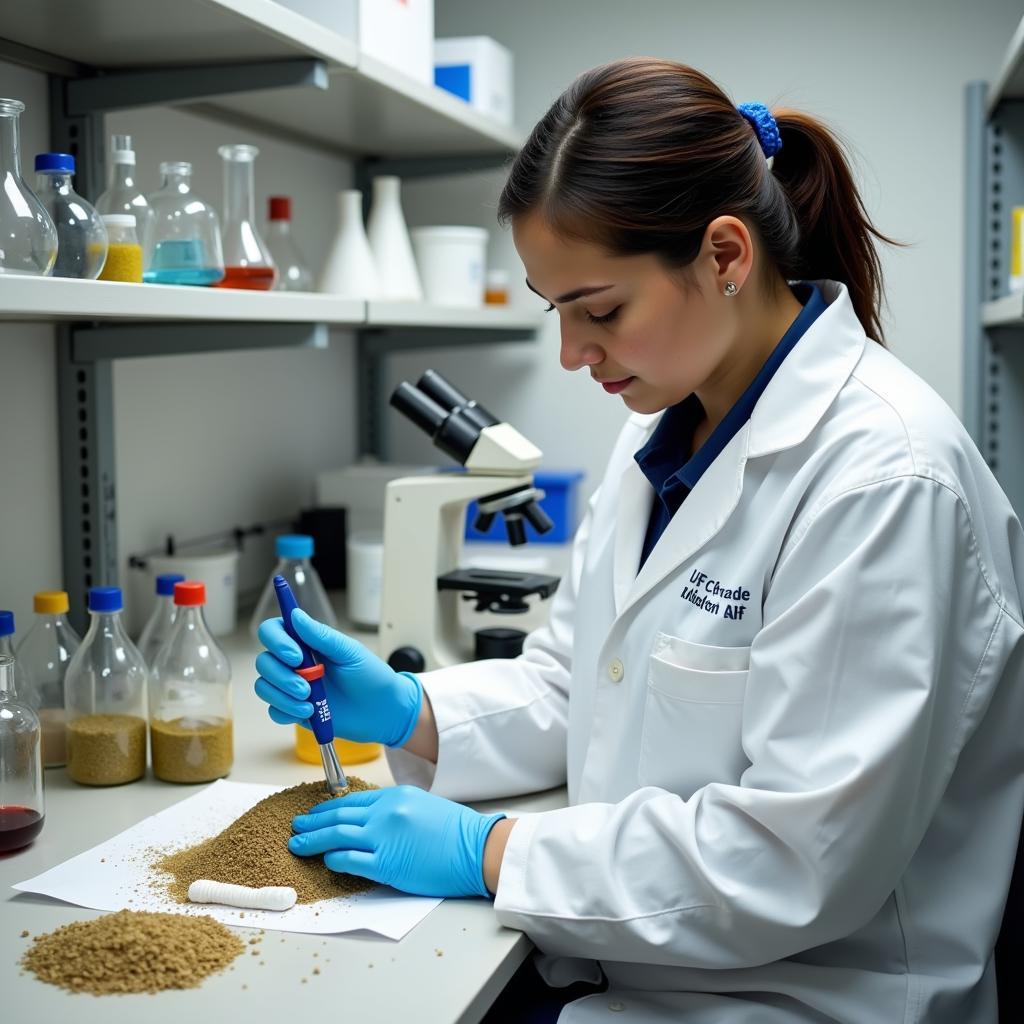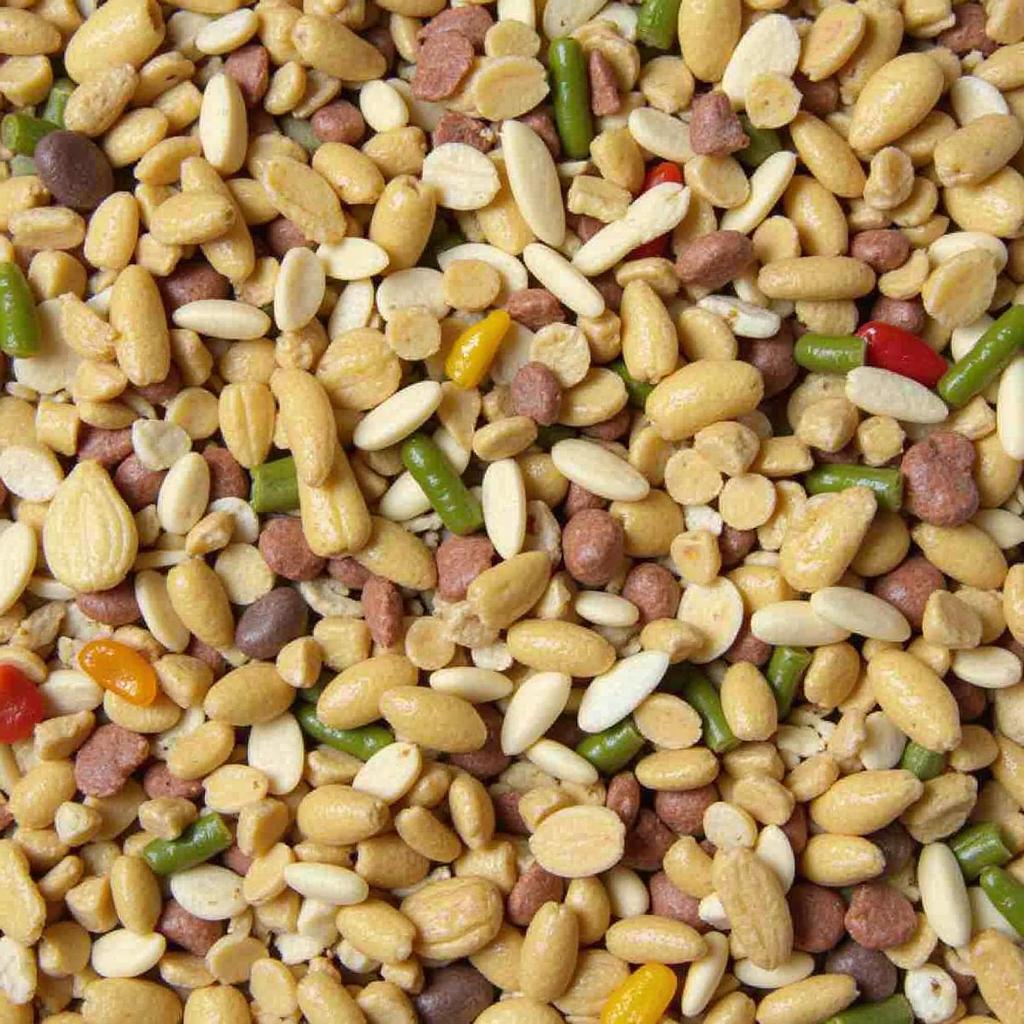Acid detergent fiber (ADF) in horse feed plays a crucial role in your equine companion’s digestive health and overall well-being. Understanding what ADF is, how it affects your horse, and how to manage it within their diet is essential for responsible horse ownership.
What is Acid Detergent Fiber (ADF)?
ADF represents the less digestible portion of fiber in horse feed, primarily composed of cellulose and lignin. It’s a key indicator of forage quality, influencing digestibility and energy availability. Higher ADF values generally correlate with lower digestibility and energy content, meaning your horse might not get as much nutritional value from a high-ADF feed. Conversely, lower ADF levels often indicate higher digestibility and energy.
Why is ADF Important in Horse Feed?
ADF is important because it provides bulk and structure to the horse’s diet, promoting healthy gut motility. This fibrous bulk helps prevent digestive upsets like colic and supports the overall health of the horse’s digestive system. Finding the right balance is key. While some ADF is crucial, excessively high levels can limit the intake of other essential nutrients.
How Does ADF Affect Horse Digestion?
Horses rely on microbial fermentation in their hindgut to break down fiber and extract energy. ADF, being less digestible, requires more extensive fermentation. A diet with the right ADF balance ensures healthy gut flora and optimal digestion, allowing your horse to efficiently utilize the nutrients in their feed.
How Much ADF Does a Horse Need?
The optimal ADF level in a horse’s diet varies depending on factors like age, activity level, and overall health. Generally, mature horses at maintenance require a diet with an ADF level between 25% and 35%. Performance horses or growing youngsters may need a diet with slightly lower ADF for increased energy availability. Consult with an equine nutritionist to determine the ideal ADF range for your individual horse’s needs.
 Horse Feed Undergoing ADF Analysis
Horse Feed Undergoing ADF Analysis
Managing ADF in Your Horse’s Diet
Managing ADF is crucial for maintaining your horse’s health. Choose high-quality forages like grass hay and alfalfa, which provide essential fiber while minimizing excessively high ADF levels. Consider incorporating feed supplements to ensure your horse receives adequate nutrition. Regularly evaluate your horse’s body condition and adjust their diet accordingly.
Tips for Managing ADF
- Test your hay: Analyze your hay for ADF content to understand its nutritional value.
- Balance the ration: Combine different forage sources to achieve the desired ADF level.
- Monitor your horse: Observe your horse’s manure and overall health for signs of digestive issues.
- Consult a professional: Seek advice from an equine nutritionist or veterinarian to create a personalized feeding plan.
“Knowing the ADF content of your horse’s feed is like knowing the octane rating of your car’s fuel. It’s a crucial factor in performance and overall health.” – Dr. Sarah Miller, Equine Nutritionist
 Balanced Horse Feed with Lower ADF
Balanced Horse Feed with Lower ADF
Conclusion
Acid detergent fiber (ADF) is an essential component of a horse’s diet, impacting their digestion and overall well-being. By understanding and managing ADF levels, you can ensure your horse receives the optimal nutrition they need to thrive. Balancing ADF with other essential nutrients is vital for maintaining a healthy digestive system and maximizing your horse’s performance and health.
FAQ
- What is the difference between ADF and NDF?
- How is ADF measured in horse feed?
- Can too much ADF cause problems in horses?
- What are some good sources of low-ADF forage?
- How can I tell if my horse is getting enough fiber?
- What are the signs of ADF deficiency in horses?
- Can I use supplements to manage ADF levels?
Common Scenarios and Questions:
- Scenario: My horse is losing weight despite eating plenty of hay. Possible Cause: The hay may have a very high ADF content, making it difficult for the horse to extract enough energy.
- Question: How often should I test my hay for ADF? Answer: Ideally, each new batch of hay should be tested.
Explore More:
- Read our article on “The Importance of Fiber in Horse Diets.”
- Learn more about “Equine Digestive Health and Nutrition” on our blog.
Need support? Contact us at Phone Number: 0772127271, Email: [email protected] Or visit us at: QGM2+WX2, Vị Trung, Vị Thuỷ, Hậu Giang, Việt Nam. We have a 24/7 customer service team.